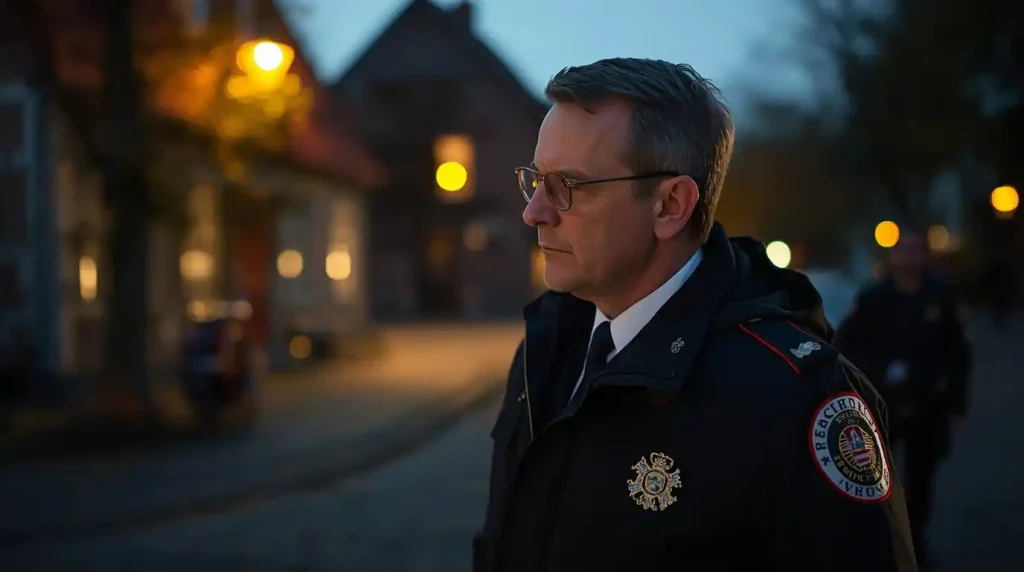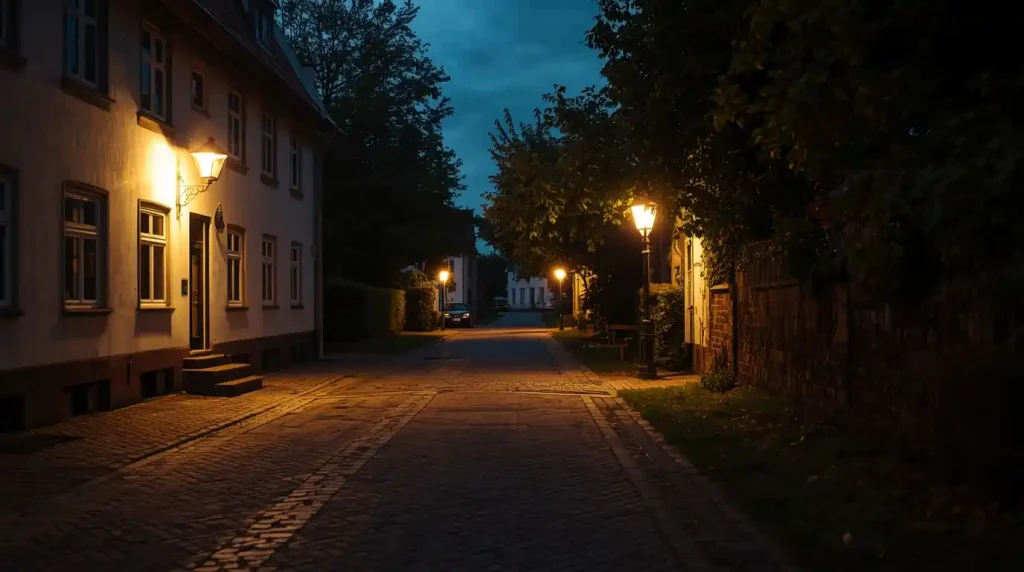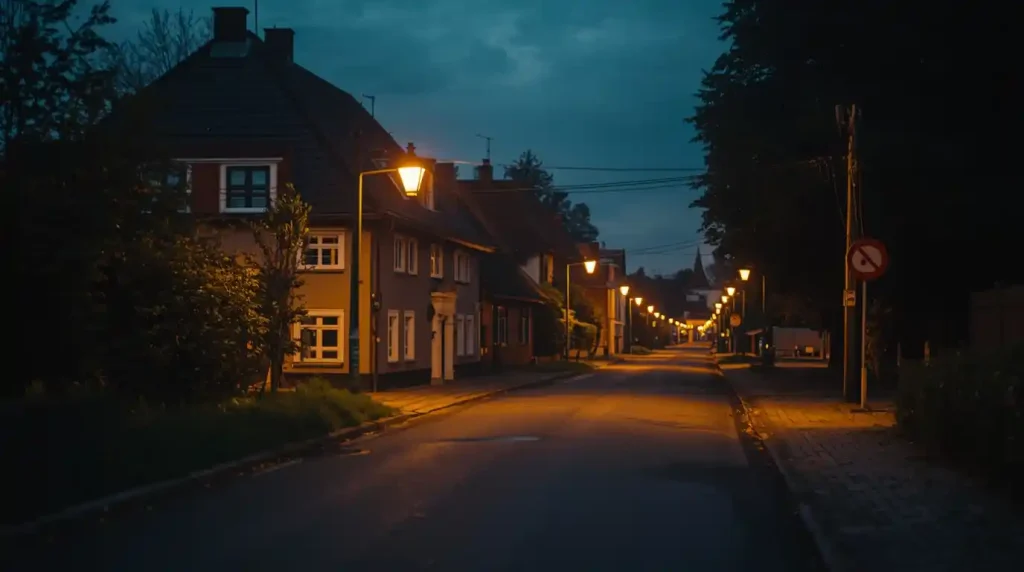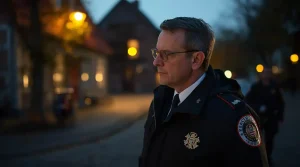5 Shocking Facts After a German Mayor Was Stabbed in a “Heinous” Attack

German Mayor
A quiet evening in the small, idyllic town of Herdecke, Germany, was shattered by an act of violence that has sent shockwaves across the nation. In a chilling event that strikes at the very heart of civic life, a German mayor was stabbed outside his home. The victim, Mayor Katja Strauss-Köster, was seriously injured in the assault on October 7, 2025, prompting an immediate and intense response from law enforcement and political leaders alike. The attack has been universally condemned, with opposition leader Friedrich Merz labeling it a “heinous” act, highlighting the grave dangers faced by public officials. This incident is not an isolated one; it is a stark symptom of a rising tide of political violence and intimidation targeting those who serve their communities. The fact that a German mayor was stabbed in his own neighborhood raises alarming questions about the safety of democracy’s frontline workers.
1. The Attack: A Timeline of a “Heinous” Assault
The events of October 7th unfolded with a terrifying simplicity that belies the gravity of the crime. According to initial police reports, the German mayor was stabbed around 8 p.m. local time directly outside his residence in Herdecke, a town in the western state of North Rhine-Westphalia.
Mayor Strauss-Köster, 55, was returning home from a civic engagement when he was allegedly approached and attacked by a lone assailant. The assailant used a knife, and the confrontation was swift and violent. Emergency services were dispatched immediately after the attack was reported, rushing the wounded mayor to a nearby hospital with serious, but not life-threatening, injuries. The swift medical response undoubtedly prevented a greater tragedy.
The attacker fled the scene on foot, disappearing into the surrounding residential area. This triggered a massive manhunt, with local police, supported by state forces, establishing a large perimeter, conducting house-to-house inquiries, and reviewing CCTV footage from the neighborhood. The fact that a German mayor was stabbed just steps from his own front door has created a palpable sense of insecurity, transforming a place of safety into a crime scene. The investigation is being treated with the highest priority, as authorities work to piece together the final moments leading up to the moment the German mayor was stabbed.

2. The Victim: Who is Mayor Katja Strauss-Köster?
To understand the full impact of this attack, one must look at the person at its center. Katja Strauss-Köster is not just a political title; he is a dedicated public servant deeply embedded in his community. First elected as the mayor of Herdecke in 2015, he was known as a pragmatic and approachable leader, a member of the center-right Christian Democratic Union (CDU).
Colleagues and constituents describe Mayor Strauss-Köster as a man committed to non-confrontational, grassroots politics. He was heavily involved in local issues—from managing the town’s budget and preserving its green spaces to supporting local businesses and cultural initiatives. He was the kind of mayor who was accessible to the people he served, a quality that now, tragically, may have contributed to his vulnerability. The attack on such a figure sends a clear message: no public official, regardless of their proximity to their community, is safe. The community of Herdecke is now reeling, struggling to reconcile the image of their dedicated mayor with the brutal reality that their German mayor was stabbed.
3. The Investigation: Manhunt and Motive
As of this writing, the investigation remains active and dynamic. German authorities have launched a nationwide manhunt for the suspect, releasing a composite sketch and description based on witness accounts. The suspect is described as a male, approximately 175 cm tall, with a slender build, last seen wearing dark clothing.
The central question driving the investigation is the motive. Why was this German mayor was stabbed? Authorities are exploring all angles, with a primary focus on the political nature of the target.
- Political Motive: The leading theory is that the attack was politically motivated. The Special Commission “Atticus” has been established, a clear indication that police are treating this as a serious attack on the state’s democratic order. They are scouring the mayor’s recent public dealings, examining any threatening letters or hostile social media interactions he may have received.
- Personal Grudge: While the political angle is prominent, investigators have not ruled out a personal motive. They are meticulously reviewing the mayor’s personal life and professional history for any disputes that could have escalated to this level of violence.
- Mental Health: The possibility that the perpetrator acted out of a diminished mental capacity is also a standard line of inquiry. However, the targeted nature of the attack—waiting for the mayor at his home—suggests a degree of planning and intent that points away from a random, spontaneous act.
Internal Resource: A History of Political Violence in Post-War Germany
4. Political Firestorm: Merz’s Condemnation and National Recoil
The political reaction to the stabbing was swift, unified, and fierce. The attack transcended partisan lines, with leaders from across the political spectrum expressing their horror and solidarity with Mayor Strauss-Köster.
The most powerful condemnation came from Friedrich Merz, leader of the opposition CDU, to which the mayor belongs. Merz did not mince words, calling the assault a “heinous attack” and a “cowardly act of violence.” He stated, “An attack on a mayor is an attack on our democracy itself. We stand unwaveringly with Katja Strauss-Köster and his family.”
Chancellor Olaf Scholz also issued a statement, expressing his shock and condemning the “brutal violence.” He emphasized that “those who engage in public service must be able to do so without fear for their safety.” This sentiment was echoed by Interior Minister Nancy Faeser, who pledged that the state would use all available resources to bring the perpetrator to justice and to enhance the protection of political officeholders. The fact that a German mayor was stabbed has created a rare moment of political unity, but it is a unity forged in shock and outrage over the degrading state of political discourse.

5. A Disturbing Pattern: The Rise of Attacks on Politicians
Tragically, the event in Herdecke is not an anomaly. It is part of a deeply concerning and escalating trend of violence and intimidation against politicians and public officials throughout Germany. The attack that left a German mayor was stabbed fits into a broader, darker pattern.
In recent years, Germany has witnessed a significant increase in threats and physical assaults against mayors, members of parliament, and even volunteers. According to a report from the Federal Criminal Police Office (BKA), the number of recorded crimes against politicians has more than doubled in the past five years. These range from death threats and property damage to physical assaults.
This phenomenon is often linked to the increasingly polarized political climate, fueled by extremist groups and rampant disinformation on social media. Mayors, in particular, are vulnerable because they are highly visible and accessible local figures, often bearing the brunt of public anger over contentious local issues, from refugee housing to COVID-19 restrictions. The stabbing of Mayor Strauss-Köster is a violent escalation of this trend, moving from threats to a direct, life-threatening physical attack. Every time a German mayor was stabbed or assaulted, it sends a chilling effect through the entire political class.
6. The Human Toll: Trauma for Families and Communities
Beyond the headlines and political statements lies the profound human cost of such violence. The moment the German mayor was stabbed, the lives of his family, friends, and the entire community of Herdecke were irrevocably altered.
For the mayor’s family, the attack is a nightmare made real. The trauma of seeing a loved one targeted and violently injured creates deep-seated fear and anxiety that will linger long after the physical wounds have healed. Their sense of security and privacy has been brutally violated.
For the community, the attack feels deeply personal. Herdecke is a town where people know their neighbors and their mayor. This violence shatters the community’s sense of peace and safety. It creates a climate of fear and suspicion, making residents question the very fabric of their society. Local council members and other public servants in the area are now looking over their shoulders, wondering if they could be next. The attack demonstrates that the repercussions of an event where a German mayor was stabbed extend far beyond a single individual, poisoning the well of civic engagement and public trust.
7. Security Dilemma: Protecting Public Officials
In the wake of this attack, a critical national conversation has been reignited: how can democratic societies protect their public officials without walling them off from the people they serve?
The traditional model of local politics in Germany, and much of Europe, is built on accessibility. Mayors hold office hours, attend local festivals, and are approachable in the street. This stabbing poses a direct challenge to that model. Immediately following the incident, security protocols for mayors across the country have been reviewed. Some are now being assigned personal security details, a measure once reserved for high-level national figures.
However, this creates a fundamental dilemma. Increased security—bodyguards, panic buttons, armored cars—inevitably creates distance between officials and their constituents. It can make politicians seem like an elite, protected class, which can further fuel the very resentment and anger that leads to violence. Finding the balance between necessary protection and maintaining the open, accessible nature of local democracy is now an urgent and unenviable task for security experts and political leaders. The fact that a German mayor was stabbed forces a reevaluation of what it means to be a public servant in an increasingly hostile age.
Internal Resource: The Fine Line: Security vs. Accessibility in Modern Politics
8. Global Context: When Politics Turns Violent
While the attack in Germany is shocking, it is part of a worrying global trend where political disagreement is increasingly expressed through violence. The incident where a German mayor was stabbed finds echoes in other democracies.
In the United Kingdom, Members of Parliament have been murdered in recent years, most notably Jo Cox in 2016 and David Amess in 2021. In Brazil, supporters of former President Jair Bolsonaro have been recorded assaulting political opponents. In the United States, the January 6th Capitol riot was a stark example of political violence aimed at overturning a democratic process.
A study by the International Institute for Democracy and Electoral Assistance (International IDEA) has highlighted a global “democratic recession,” marked in part by rising political violence. This violence is often exacerbated by social media, which allows for the rapid spread of hate speech and disinformation, dehumanizing political opponents and creating an environment where violence is seen as a legitimate tool. The stabbing in Herdecke is a German manifestation of this global sickness, a warning sign that the foundations of civil discourse are eroding worldwide.

9. Conclusion: An Assault on Democracy Itself
The brutal stabbing of Mayor Katja Strauss-Köster is a watershed moment for Germany. It is more than a crime against a single individual; it is a direct assault on the principles of democracy and civic engagement. The fact that a German mayor was stabbed for doing his job—for being a public servant—is an alarm bell that cannot be ignored.
This heinous act exposes the dangerous undercurrent of hatred and intolerance that threatens to poison political life. It highlights the very real physical risks that mayors, councilors, and volunteers now face simply for participating in the democratic process. The unified political condemnation is necessary, but it is not sufficient. It must be followed by concrete action: robust security measures where needed, a relentless pursuit of justice, and, most importantly, a societal recommitment to respectful and non-violent political discourse.
The recovery of Mayor Strauss-Köster is the immediate priority. But the long-term health of German democracy depends on how the nation responds to this attack. Will it lead to a retreat from public life, or will it galvanize a renewed defense of its values? The answer to that question will determine the true legacy of the day a German mayor was stabbed in Herdecke.
Table of Contents
Reference Website:
https://edition.cnn.com/2025/10/07/europe/germany-mayor-stabbing-herdecke-intl
Our Related News Website:
Sports: Sport Flash
World News: The News Grid
Environment News: Eco Alert
Business News: Biz Trend Now
Daily News: Unbiased Daily
Realm News: Real Time Realm
Retrun to our Homepage





